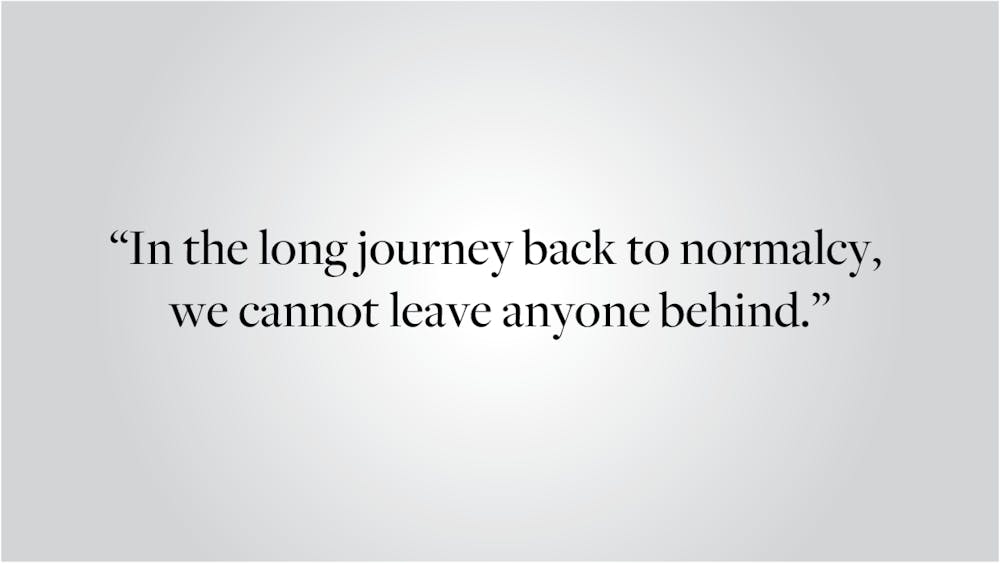Even as the pandemic rages on, public health measures have increasingly become a matter of personal responsibility on College Hill. Students on campus are now accountable for administering their own COVID-19 tests and reporting positive results. Despite high case counts nationwide, Brown students face far fewer restrictions now than they did last year. Our cafeterias and lecture halls remain open, for the most part.
Some of this freedom is justified. A vaccinated and boosted population and a better understanding of how the virus works mean that autonomy and safety can coexist. But during a pandemic, there is a fine line between freedom and folly. Our campus cannot dismiss the continued danger of COVID-19 and forget that personal decisions still have public consequences.
For some on College Hill, fears over COVID-19 have faded; some speak of infection as inconsequential or inevitable. But such an outlook is not a luxury that everyone can afford. Every day, community members who are immunocompromised, for example, face a far grimmer calculus than their peers. Yet many professors, students and administrators take for granted that everyone is now ready for pre-pandemic normalcy. The vulnerable are now forced to advocate for themselves, asking instructors to better accommodate remote participation and reminding students in the elevators to wear their masks over their noses.
This shouldn’t be the case. As a community, our decisions must consider the concerns of the most COVID-cautious among us. And as individuals, we should not assume that our own attitudes toward the virus are shared by others. Instructors should proactively ask their classes how their course policies can better support students who need to stay home. When meeting with classmates to work on an assignment, students should take the small step to ask whether it is okay to unmask or perhaps consider remote collaboration. In whatever context, we should all be accommodating of varying COVID comfort levels. Caution should be the default; individuals shouldn’t need to justify legitimate fears.
It goes without saying that students should diligently adhere to testing responsibilities and stay home when they have symptoms. In shared spaces, students should remember to properly wear masks, and in classrooms, instructors should take care to enforce masking policies. These practices are a sign of respect, helping ensure that others feel safe in public settings. And, of course, they also matter from a public health standpoint. The protective measures we take are not symbolic, but scientific. Infractions add up — more exposure, more quarantines, more illness. Conversely, small sacrifices — distancing, masking, avoiding unsafe crowds — keep us safe. Our choices impact not only our campus, but the broader Providence community.
After two years, we understand that many are tired of seemingly endless restrictions. With the tools and knowledge we now have, we are better equipped to avoid another lockdown. But we must remember that freedom looks different for everyone. In the long journey back to normalcy, we cannot leave anyone behind.
—Editorials are written by The Herald’s editorial page board. This editorial was written by its editor Johnny Ren ’23, and members Catherine Healy ’22, Caroline Nash’22, Augustus Bayard ’24, Devan Paul ’24 and Kate Waisel ’24.





